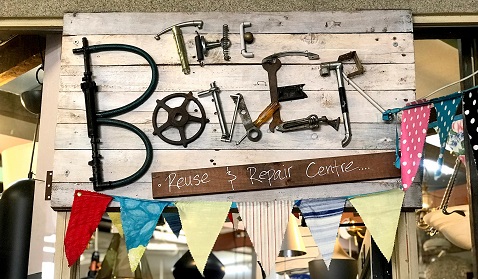Support for local government and community repair schemes should be a cornerstone of any future Right to Repair framework, an ALGA submission says.
Right to Repair is a regulatory framework entitling consumers to have their consumer durables repaired by a repair shop or service provider of their choice, as well as being able to repair simpler products themselves with commonly available tools.
The Productivity Commission is currently looking at barriers to repair services and arrangements for preventing premature or planned product obsolescence and the proliferation of e-waste.
In a submission to the PC inquiry filed this week, the Australian Local Government Association (ALGA) said making it easier for consumers to fix broken or faulty electrical or electronic devices will lead to less waste and resource use.
“Each year, local government collects and receives around nine million tonnes of waste, sorts it at material recovery facilities (MRFs), dispatches what can be recycled to reprocessing facilities, resells what can be reused through community-based ‘green shed’ programs, and landfills the remaining portion,” the submission noted.
“Local governments, therefore, have a major interest in diverting waste from landfill, and in principle support the proposition, expressed in the Inquiry’s consultation paper, that improving the right to repair will potentially lead to improved environmental outcomes due to less resource use and waste.”
ALGA’s submission also suggests, among other things, that the PC:
- review product stewardship legislation to ensure repair and reuse are prioritised in schemes;
- introducing subsidies and tax concessions for repair/repairers;
- enacting laws prohibiting planned product obsolescence; and
- requiring original equipment manufacturers to provide independent repairers fair access to parts, tools and/or repair information.
As co-author of the National Waste Action Plan (2020), ALGA advocated for the adoption of the “waste avoidance hierarchy” (reuse, repair, recycle before disposal) as the guiding principle in developing an Australian “circular economy”.
The ALGA submission notes that community-based repair has the potential to contribute significantly to increased rates of repair.
“The partnership between 21 councils and the NSW product repair organisation Bower provides a useful case study in supporting active household involvement in repair and the circular economy,” it says.
“The 21 Sydney metropolitan councils have service agreements with Bower, and pay the organisation a fee (based on the number of households serviced) to collect, repair, and sell-on items at lower prices.
“They [the councils] also promote and invite residents to Repair Cafes and pay Bower for the service.”



